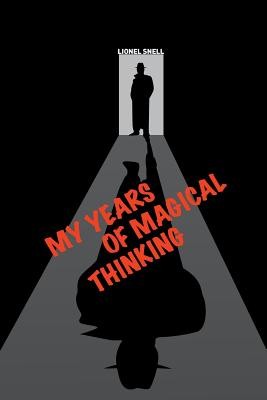
- We will send in 10–14 business days.
- Author: Lionel Snell
- Publisher: Mouse That Spins
- ISBN-10: 0904311244
- ISBN-13: 9780904311242
- Format: 15.2 x 22.9 x 1.9 cm, minkšti viršeliai
- Language: English
- SAVE -10% with code: EXTRA
Reviews
Description
Understand magical thinking, and you will understand why the 20th century age of reason has lead us to a "post-truth" society.
We are taught to deny, demonise or even glamorise magic - rather than ever admit to thinking magically. But it is every bit as fundamental to human nature as science, religion or art.
Faced with the growing popularity of alternative healing, astrology and the New Age, people ask: "whatever happened to the Enlightenment?" They assume that "The Enlightenment" marked a break with a superstitious past; it was a forward leap for humanity after which any return to magical thinking would be regressive, or even impossible. It was a forward step, but it began by looking back two millennia to the Classical era, and re-discovering the foundations on which to build a culture of science and humanism that is considered to be the high point in human achievement.
The classical era was itself a high point in human culture, but it only spanned five centuries. The following, Roman, era saw a resurgence of magical thinking and laid the foundations for alchemy, astrology, alternative healing, and much of today's magical ideas and practices. Pontius Pilate famously asked "what is truth?" and two thousand years later postmodernist philosophers are raising similar questions.
Is the revival of magical thinking just a natural evolution of thought, to be expected after five centuries of rationalism?
The author was brought up in the materialist 1950s and educated in that sceptical Enlightenment tradition to become a Cambridge mathematics graduate. Despite that, he became increasingly interested in magic and the occult and is now recognised as an authority on the subject. So how is it possible to shift from our knowledge of scientific reality to an acceptance of magic? The book describes the author's own subjective experience of how that evolved over his lifetime.
Parts One and Two outline some of the important influences on his thinking and Parts Three and Four expand on CP Snow's idea of two cultures (Art and Science) to propose four cultures: Art, Science, Religion and Magic. Part Five looks at the conflicts and misunderstandings between cultures and reasons why magic gets a raw deal, or is simply denied as a culture.
Part Six summarises the case and the Part Seven looks at contemporary trends and assumptions to show that the rise in magical thinking goes far deeper than just the visible popularity of astrology columns and alternative healing. A penultimate chapter provides practical suggestions for those willing to explore the value of magical thinking - or simply wanting to survive in a post-truth world.
EXTRA 10 % discount with code: EXTRA
The promotion ends in 23d.07:11:39
The discount code is valid when purchasing from 10 €. Discounts do not stack.
- Author: Lionel Snell
- Publisher: Mouse That Spins
- ISBN-10: 0904311244
- ISBN-13: 9780904311242
- Format: 15.2 x 22.9 x 1.9 cm, minkšti viršeliai
- Language: English English
Understand magical thinking, and you will understand why the 20th century age of reason has lead us to a "post-truth" society.
We are taught to deny, demonise or even glamorise magic - rather than ever admit to thinking magically. But it is every bit as fundamental to human nature as science, religion or art.
Faced with the growing popularity of alternative healing, astrology and the New Age, people ask: "whatever happened to the Enlightenment?" They assume that "The Enlightenment" marked a break with a superstitious past; it was a forward leap for humanity after which any return to magical thinking would be regressive, or even impossible. It was a forward step, but it began by looking back two millennia to the Classical era, and re-discovering the foundations on which to build a culture of science and humanism that is considered to be the high point in human achievement.
The classical era was itself a high point in human culture, but it only spanned five centuries. The following, Roman, era saw a resurgence of magical thinking and laid the foundations for alchemy, astrology, alternative healing, and much of today's magical ideas and practices. Pontius Pilate famously asked "what is truth?" and two thousand years later postmodernist philosophers are raising similar questions.
Is the revival of magical thinking just a natural evolution of thought, to be expected after five centuries of rationalism?
The author was brought up in the materialist 1950s and educated in that sceptical Enlightenment tradition to become a Cambridge mathematics graduate. Despite that, he became increasingly interested in magic and the occult and is now recognised as an authority on the subject. So how is it possible to shift from our knowledge of scientific reality to an acceptance of magic? The book describes the author's own subjective experience of how that evolved over his lifetime.
Parts One and Two outline some of the important influences on his thinking and Parts Three and Four expand on CP Snow's idea of two cultures (Art and Science) to propose four cultures: Art, Science, Religion and Magic. Part Five looks at the conflicts and misunderstandings between cultures and reasons why magic gets a raw deal, or is simply denied as a culture.
Part Six summarises the case and the Part Seven looks at contemporary trends and assumptions to show that the rise in magical thinking goes far deeper than just the visible popularity of astrology columns and alternative healing. A penultimate chapter provides practical suggestions for those willing to explore the value of magical thinking - or simply wanting to survive in a post-truth world.


Reviews